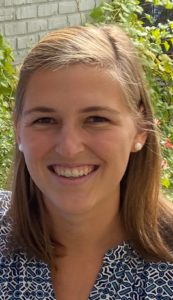It was the summer before COVID (little did we know), and I gathered with some housemates and neighbors at the nearby Durham Bulls stadium. It was an early evening in July, and it was hot.
Another housemate, Sam, joined us after he got off work – six or so hours of collecting and organizing carts in the Walmart parking lot, a job I do not envy, especially on July days. So, with his two BBQ sandwiches and cold Dr. Pepper in hand, he joined us a few innings in. Sam greeted us all in his joyful way and was particularly excited to see one of his ‘former roomies’ a couple rows ahead. They chatted and the roomie asked for a sip of Dr. Pepper – an old treat and reminder of roommate days with Sam. Sam gladly passed his bottle up a few rows. When the roommate returned it, before Sam had even had a sip, another friend asked if she could have a splash of Dr. Pepper. “Why certainly,” Sam responded. She passed over her cup and he poured soda in – her eyes got wide as he filled up her little plastic cup. I turned to see that Sam had roughly half of his Dr. Pepper left, he hadn’t had a drop and he still had his two BBQ sandwiches to go!
I thought to myself, Sam, you just gave away your drink … it’s hot … you should be rationing it … baseball is a long game, we have a ways to go … And, yet, maybe Sam sees the world differently. You see, in this instance, Sam didn’t see the soda as something that was his, something to be rationed so that he had enough for the whole game. He saw it as something to be shared. I would have likely given some away if asked, but I would have made sure to have over half left – it was mine, wasn’t it?
Yet, Sam saw not through a lens of scarcity but through one of abundance. Reading this Leviticus passage, we can get caught up in the laws, but I cannot help but see the way God is inviting us to see differently, to live differently.
The people are told to reap the harvest of their fields, to gather from the vineyard, but not to gather up at the very edges, not to pick up what has fallen or to take all from the branches. These are to be left for the poor and alien – for those unable to own and plant. I have to wonder if God is teaching the people of Israel to trust, teaching them to recognize that these harvests are not solely theirs, but a gift from God. If they recognize all as a gift, they might live with deeper reliance on God, with hands holding loosely to what they have been given. The passage continues, you shall not steal or deal falsely, you shall not judge unjustly or be partial to anyone, you shall not profit by others or hate your people because God is Lord. God is just, God is kind, God is loving, and we are called to follow.
We are called to strive to see the world, not from a view of scarcity, but from one of abundance. All is a gift. And we are called to respond in love – as the song goes – “We love, because God first loved us.”

